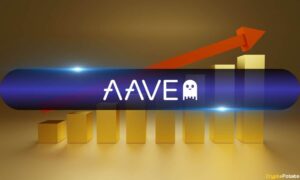Pi Network reaches 10M KYC’d users, but token still cannot be traded.

According to the April 16 announcement, the P Network app has more than 10 million users who have verified their identity by completing the Know Your Customer (KYC) process.
The P team promises to launch the mainnet and if 15 million users pass KYC and reach a series of milestones, the tokens will become marketable. With 10 million accounts already verified, this means the KYC goal will be reached when another 5 million users complete the verification.
Despite this success, business analytics platform AIMultiple says the Pi “doesn't bring any value to users” because they can't exchange their coins for fiat currency. Pi Network was launched in 2019 as a centralized application. Users generate Pi tokens daily by pressing a button from within the app, and Pi currently cannot be transferred to other users via wallet.
According to the announcement, 10 million users, called “pioneers,” have completed identity verification through the app's native identity verification solution, Pi KYC. This solution provides a unique and proprietary approach that combines machine automation and intensive, hyperlocal human verification to perform secure, accurate and efficient KYC, the announcement said.
Dr. Nicholas Kokalis, founder and head of Pi Technology, said the success “shows that the industry is no longer dependent on fiat services to succeed.” He also said the new KYC system will “allow other Web3 services that involve ownership of assets to achieve their identity verification needs through PI.”
In December, the group announced plans to launch an “Open Network” or mainnet in 2024 if certain conditions are met. These conditions require the creation of 100 Pi apps in addition to the 15 million users who pass KYC. In addition, the team must complete all the “technology, product, business and legal” work required to launch the network and there must be no “unfavorable external environment” that could hinder the network's success. The team has not yet announced a specific date for the mainnet launch.
AIML analyst Sim Dilmegani said the Pi network probably won't benefit users, “[w]We do not expect anyone other than the Founders to benefit significantly from the PI Network. Because it “works like a direct sales or affiliate marketing system, offering users future rewards for bringing in new users.” Dilmegani says the affiliate marketing system is used to drive traffic to the app, which in turn is used to sell ads to the app developer. “Founders are already taking advantage of the app as they launch alternative video ads to monetize their active user base,” Dilmegani said.
Dilmegani admits that P Group may eventually launch a blockchain mainnet. However, he argued that this is unlikely, as the token would quickly depreciate when users sell it to the market. “Then the coin won't be valuable enough for people to keep clicking and logging in,” which could reduce the app's value to advertisers.
Cointelegraph has reached out to P Group for comment. In response, one representative acknowledged that Pi has taken an “unusual and novel” approach to blockchain development, such as offering “an intermediate closed network period of mainnet” instead of opening an open network immediately. Building millions of our community members on the platform and KYC to help the community build a stronger network before we open the open network.
The representative said Pi has achieved several goals since its inception, including “Pi mining mobile app, Pi Browser mobile app as Web3 ecosystem interface, cross-platform application, Testnet and Mainnet blockchains, Wallet, developer platform, novel KYC solution” and more. The representative argued that the decision not to start an open network immediately is important, “We believe that anything important takes time and patience, and we believe that such elements are necessary for the healthy operation of the Open Network.”
In the year March 3, 2021 According to a report from Vietnamese media vnExpress, P Network is the 22nd most downloaded iOS app in Vietnam. In May 2021, a Vietnamese news outlet reported that Pi had inadvertently leaked images of users' ID cards for hacking purposes. However, a Pi Network spokesperson said that the app handles KYC through a third party and does not store this information on its servers, nor is there any information about its release.
Related: Vietnam government warns of crypto trade risks as Pi gains popularity












